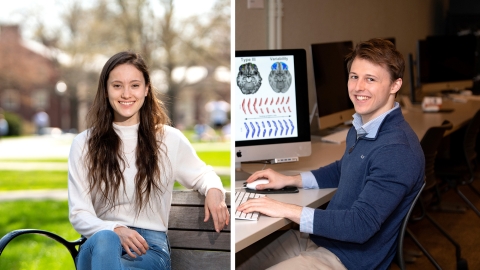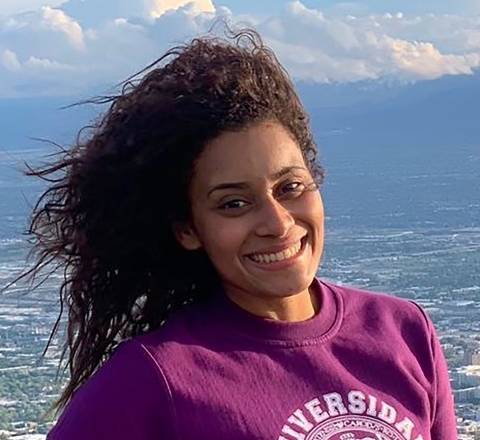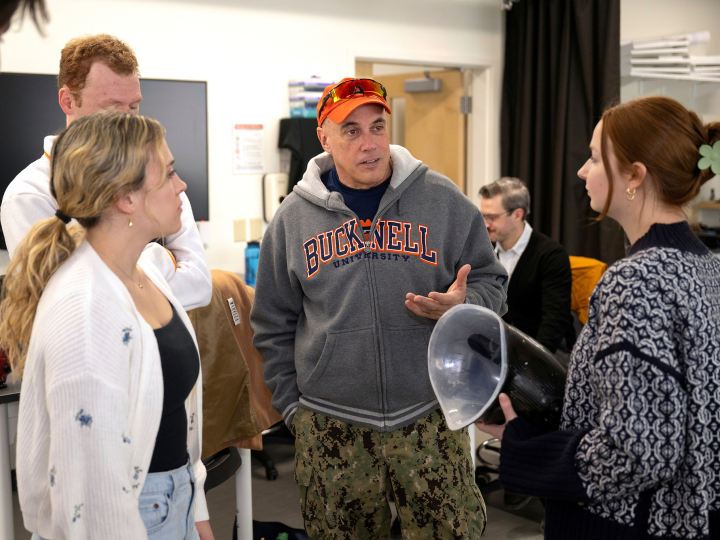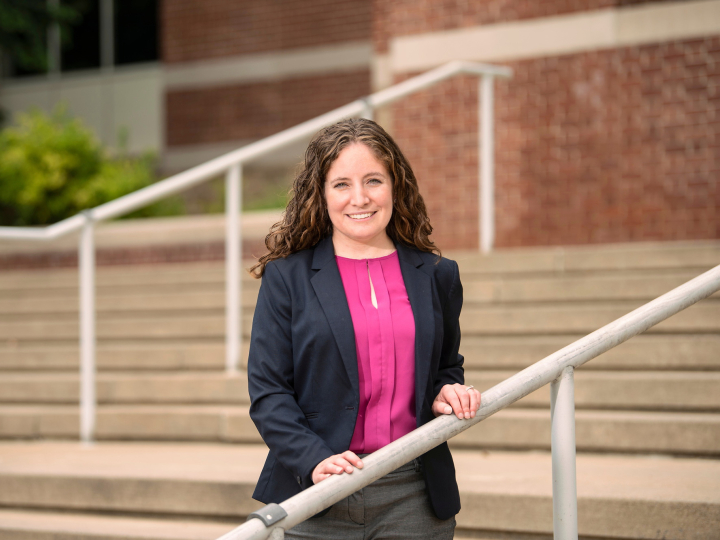
Bucknell Students, Grads Awarded Four NSF Graduate Research Fellowship Grants
June 9, 2021
Gari Eberly and William Snyder are members of the Class of 2021 who are NSF GRFP grant recipients. Photo by Emily Paine, Communications

Karen Peralta Martinez '17. Photo by Ricardo Sanchez
Bucknell University students and recent graduates have been awarded four National Science Foundation Graduate Research Fellowship Program (NSF GRFP) grants to pursue research-based graduate studies in the sciences and engineering. New graduates Gari Eberly '21, a biomedical engineering and creative writing double major; and William Snyder '21, a neuroscience major, joined recent Bucknell graduates Jose Valera '19, biology; and Karen Peralta Martinez '17, biology, as awardees.
Bucknell also received five honorable mentions including Ian Vogel '19, neuroscience; Katherine Townsend '19, chemistry; Brenna Prevelige '20, biology; Emma Frawley '17, environmental studies and Spanish; and Paige Caine '21, biology.
The purpose of the NSF GRFP is to promote the quality, vitality and diversity of the scientific and engineering workforce of the United States. The program recognizes and supports outstanding graduate students who are pursuing full-time research-based master's and doctoral degrees in science, technology, engineering and mathematics (STEM), STEM education, psychology or the social sciences.
The five-year fellowship includes three years of financial support including an annual stipend of $34,000 and a cost of education allowance of $12,000 to the institution.
Eberly, who plans to pursue a Ph.D. in biomedical engineering with a focus on nanotechnology, parlayed her Bucknell lab experience to a position last summer in an undergraduate research program at the University of Pennsylvania. Using a new carbon-based material, she worked to construct a seizure characterization device capable of producing an image of the brain while also recording its electrical signals. She called it "such a cool experience that combined everything I love about biomedical engineering."
Reflecting on her time at Bucknell she says that "having the chance to build and design early in my academic career was a huge plus for me" and that "Bucknell is one of the only institutions that could've prepared me to do that kind of research."
Eberly began her research career at Bucknell the summer before her first year through the STEM Scholars Program, an initiative also supported by an NSF grant.
Snyder has also put himself on the front line of research, hoping to discover what structural patterns in the brain say about psychopathology. Analyzing brain development throughout adolescence using mathematics applications like graph theory, connections between brain folding and brain function Snyder says that this can "boost explanatory power as far as predicting disorder at an early age."
After Bucknell, he'll continue expanding these scientific boundaries at the University of Cambridge as a recipient of the 2021 Gates Cambridge and the NIH Oxford Cambridge Scholarships.

Jose Valera '19. Photo by Melida Valera
Building on his Bucknell biology background, Valera began work on his doctorate in marine science. His research investigates the microorganisms that inhabit planetary extreme environments to bridge the gap between observational biosignatures and biogeochemical exchanges in the environment. Over the course of his doctoral studies, he will be conducting parts of his research at the NASA Jet Propulsion Laboratory.
After graduating from Bucknell in 2017, Peralta Martínez has worked as a lab technician studying candidate modifier genes influencing phenotypic expression of a rare disease in children, NGLY1 deficiency, at the University of Utah School of Medicine. She has now begun her Ph.D. program at the University of Pittsburgh, studying the host and microbial contributions to mammalian gut physiology.

